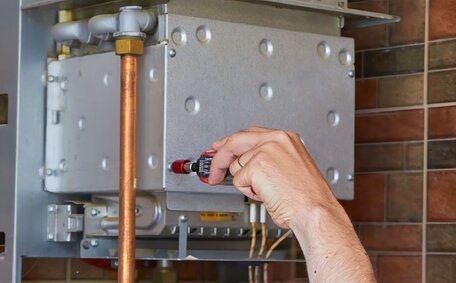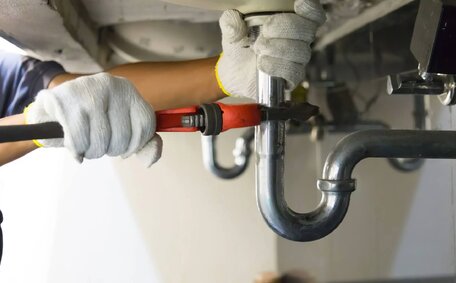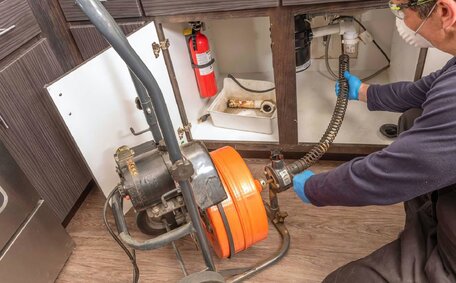Introduction to blocked drains in rental properties
A blocked drain in a rental property is a considerable inconvenience, disrupting daily activities. As a tenant in Dulwich Hill, Sydney, blocked drains in your property, often resulting in a sewer choke, mean disrupted use of sinks, showers, and toilets.
Confusion often arises regarding who is responsible for resolving blocked drain issues in rental properties. This stems from ambiguity in tenancy laws and agreements. This guide will clarify key factors determining responsibility for blocked drains in a rental space.
Some circumstances make it the tenant’s job for responsible clearing the blockage, while in other cases the landlord foots the repair bill. It explores relevant legislation, typical causes of clogs, preventative steps, and the best approaches for tenants and landlords dealing with blocked drains.
With enlightening details on managing your blocked drain issues, you’ll be well-prepared for swift resolution. Let’s delve into who should be responsible for blocked drains, stay on top of maintenance, and take action when a plumbing problem such as leaking taps in your Dulwich Hill rental arises.
Determining whether the landlord or tenant is responsible
The landlord-tenant agreement is pivotal in establishing who is responsible for a blocked drain, considering its cause and nature. There are a few key factors that decide whether the tenant or landlord is liable.
Under the NSW Residential Tenancy Act, tenants are obligated to inform their landlord of urgent repairs needed, including plumbing problems like blocked drains. However, where the drain been blocked determines responsibility fix, which depends on the specific circumstances involving the landlord tenant relationship.
Tenants may be liable for resolving blocked drains if their negligence, such as flushing wet wipes, is the cause. Tenants would find themselves responsible blocked if it had been caused by what can do the tenant or neglect, handling the repair costs as well.
Landlords are obliged to maintain drainage systems and plumbing fixtures to keep them functioning optimally. Should a blockage occur through no fault of the tenant, like pipe damage or tree roots, the landlord is expected to address the issue promptly.
If a blockage arises from pre-existing conditions or substandard plumbing, the landlord must address it promptly after being notified. This remains the responsible repair approach, even if the problem requires the involvement of Sydney Water or your local council at a later stage.
To identify root causes of responsibility for a blocked sewer drain, you should call your landlord or property manager for an inspection. Landlords should determine the blockage’s origin, ascertain responsibility, and coordinate the clearance of wastewater pipes.
Maintaining open communication is vital, as blockages can be attributable to various issues in your home. If what can a tenant landlord agreement on responsibility is elusive, the NSW Civil and Administrative Tribunal steps in with dispute resolution services.
Causes of blocked drains in rental properties
Blocked drains in rental properties commonly arise from tenant-induced issues and structural or pre-existing problems.
Blockages caused by tenants often result from improper drain and plumbing fixture use, leading to potential expenses for the landlord. Some examples include:
- Flushing non-flushable items can result in a blocked toilet and severe plumbing problems
- Incorrect disposal of fats, oils, and grease down the sink
- Using harsh drain cleaners or attempting DIY drain unblocking with inappropriate tools
- Allowing large food particles, hair, and other debris to accumulate in drains
Structural or pre-existing issues that could cause blocked drains include:
- Tree roots growing into external drainage pipes
- Collapsed or damaged drain lines
- Build up of mineral deposits or grease from years of use
- Poorly maintained aging plumbing systems can malfunction due to wear and tear.
- Blockages forming at junctions between pipes
- Cracked or broken drain pipes
This second category of drain blockage is considered the landlord’s responsibility to repair, as it stems from installation faults or lack of proper maintenance predating the current tenancy. Tenants should promptly notify their landlord of these urgent maintenance needs.
Preventing blocked drains as a tenant
Conscientious tenants can take several measures to prevent blocked drains in their residence:
- Avoid pouring fats, oils, and grease into your sink; instead, allow them to solidify before discarding in the bin.
- Minimise food scraps and other items going down drain by scraping plates and disposing in the bin before washing.
- Use drain strainers to catch hair and debris, reducing the likelihood of clogs in your property’s drains.
- Avoid harsh chemical drain cleaners to prevent pipe damage.
- Refrain from flushing wet wipes or anything besides toilet paper, including pads, cotton buds, and similar items.
- Run tap water while using the sink and bath to keep water flowing freely within property.
- Pour 1 cup baking soda and 1 cup vinegar down the kitchen sink and sewer drains monthly.
- A tenant must notify the landlord or property manager without delay when noticing tell-tale signs such as gurgling drains or languid water flow.
- Install inexpensive drain cover screens and hair catchers.
- Sweep debris and hair off bathroom floors before showering.
Tenants should be attentive to what enters your property’s plumbing and taking regular monthly maintenance measures can significantly lessen the chance of a blocked drain your occurrence. We highly recommend you to Address any persistent plumbing needs and drainage issues with your landlord property.
As a tenant faced with a blocked drain, you have a few options to get the issue resolved:
Try DIY methods
For simple sink clogs, you can attempt responsible clearing blocked drains as an initial DIY solution.
Use a plunger or drain snake to attempt clearing a blocked sewer drain or address other plumbing issues.
Contact your landlord
For major blockages affecting your hot water system or if manual efforts fail, quickly contact your landlord or property manager for professional help. The landlord is obliged to cover costs and coordinate the repair of blocked drains due to structural or pre-existing issues. Notify your landlord in writing to maintain a clean and safe rental property, and keep detailed records of all communications.
Call a plumber yourself
In urgent situations involving gas electricity problems – essentially an emergency plumbing case – a tenant may call a licensed plumber directly, Should their landlord neglect any plumbing issues such as a related drain blockage. Generally, you may need to cover the upfront costs if the repairs are deemed your responsibility under the lease agreement. Retain all receipts to support a potential claim for cost recovery if you have carried out necessary repairs.
Consult your lease agreement
Check the clauses in your lease concerning drain blockages - you may have the right to organise repairs after a set period of landlord inaction. Refer to your agreement and contact NSW Fair Trading for tenancy advice.
Be proactive but, should the need arise, contact your local resources to avoid causing harm to the property during tenancy. Communicate clearly and understand that landlords are responsible ensuring any necessary plumbing repairs meet compliance standards. A proactive approach can lead to blockages being swiftly resolved.
Disputes over liability and costs
Disagreements between landlords tenants about who stands responsible for rectifying a blocked drain and the ensuing costs can occasionally crop up. If determining responsibility can difficult, here’s how a landlord tenant can seek guidance on resolving disputes:
- Communicate calmly and with clear facts with your landlord agent when disputes about drains arise. Provide details on the issue and how it is impacting you.
- Refer to the end lease agreement and the NSW Residential Tenancies Act when asserting your rights and responsibilities as a tenant.
- Seek advice from NSW Fair Trading on tenancy matters and make sure to follow the formal dispute processes, typically ending up involving the landlord.
- If the landlord fails to act, you can arrange repairs and potentially recover costs through the NSW Civil and Administrative Tribunal.
- Always obtain multiple quotes from very professional licenced plumbers before approving drain repairs.
- Document all communication and costs related to the drain issue.
Staying solution-focused and demonstrating a willingness to go above and beyond in understanding your rights will help resolve any disputes efficiently and fairly.
Key takeaways for tenants dealing with blocked drains
When faced with a blocked drain as a tenant, there are some key takeaways to guide your response:
- First, attempt DIY methods for minor sink clogs, ensuring to avoid harsh chemicals.
- For significant blockages, promptly contact your landlord in writing.
- Determine if it is a structural issue, which is the landlord’s responsibility.
- Blockages from tenant misuse, like fat/wipes/food, are usually your responsibility.
- You can also stave off issues by being attentive to what enters your drains and performing regular maintenance.
- If the landlord won’t act, you can arrange repairs and potentially recover costs.
- Address any disputes calmly and refer to your agreement and legislation.
- Obtain multiple quotes before approving repairs.
- Document everything relating to the blockage and repairs.
Be aware of your rights and responsibilities as a tenant regarding blocked drains, and for urgent unblocking or advice, reach out to the expert plumbing services available in Dulwich Hill.






